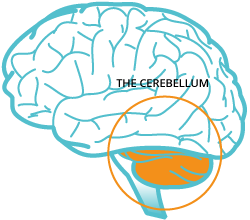Narratives can play a decisive role in determining action on climate change. An example is the green growth narrative, which offers an optimistic and empowering context for the clean energy transition. This narrative drives the Paris climate accords, in which individual countries set out win-win strategies for green economic growth and decarbonization. Another prominent narrative, though, is doomism: a scientifically unfounded story in which runaway global warming creates an inevitable ecological or even civilizational collapse. The serious danger of doomism is that it can sap the will to do the hard work necessary in taking action for a healthy climate.
A few weeks ago, two scholars published a remarkable study showing that the pervasive human belief in moral decline is unfounded, and explaining how it may originate from several well-established psychological mechanisms. This compelling work on cognitive bias may have substantial significance for understanding climate doomism. In their paper, experimental psychologists Adam Mastroianni and Daniel Gilbert created and administered surveys asking participants if they thought other people’s morality – goodness, kindness, honesty and niceness – is changing over time. They also performed a novel systematic analysis of a large amount of previously available survey data addressing the same questions. Mastroianni and Gilbert were able to show that people of widely varying ages, races and nationalities all believe that humans are becoming less moral over time. But their analysis also showed that there has been no change in people’s perception of present-day morality over the last 55 years in which the surveys were done, nor did survey participants perceive moral decline within their personal networks or at times before they were born. In other words, people believe that moral decline is pervasive among humans, but the decline only began when they were born and, moreover, doesn’t apply to people they know. These findings suggest that people’s belief in ongoing moral decline is an illusion, consistent with Harvard linguist Steven Pinker’s studies showing that, society wide, and contrary to many people’s perceptions, violence is declining while enlightenment values like health, peace and happiness are on the upswing.
Mastroianni and Gilbert explain the false belief in moral decline by invoking two well known cognitive biases. First, humans deliberately seek out and are exposed to a great deal more negative than positive information about others that they do not personally know, as reporting on negative stories drives the daily news cycle. Second, many experimental psychology studies show that humans retain strong memories of positive events in their personal pasts, while negative events more quickly lose their force. Together, these two cognitive biases create a “biased exposure and memory” (BEAM) mechanism that could create the broadly held illusion that the good old days are behind us, and things are only getting worse. It is important to note that the BEAM mechanism is not proven, but its consistency with the survey data and reliance on well known biases make it a leading candidate for more detailed investigation.
It is not difficult to see how Mastroianni and Gilbert’s findings might be relevant to climate doomism. Today’s narrative about climate change is strongly colored by reporting on extreme weather, much of which is now clearly linked to global warming. These newsworthy events are ongoing, so we are routinely exposed to a drumbeat of negative stories that frequently emphasize the record-breaking aspects of the current disaster. And many people have personal memories of past summers that were not so hot, and can recall times (not so long ago) when wildfires were not a regular concern and coastal flooding was rare and not connected to sea level rise.
Both aspects of the BEAM mechanism may thus be contributing to the internal sense that many people have that the climate is worsening. Unlike the illusory decline in morality, however, climate change is actually happening. A key question for further investigation then suggests itself: if the BEAM mechanism can drive a pervasive belief in a decline that is illusory, what influence might these or other cognitive biases have if the belief were about a decline that is actual? It seems plausible that, in this circumstance, such biases would lead people to exaggerate the decline, producing assertions that the situation is worse than it really is. Such exaggeration is the defining feature of climate doomism.
Climate scientist Michael Mann has dedicated substantial efforts to debunking right-wing denialist attacks on climate data, having been subjected to many such attacks on his own work. However, Mann also dedicates a long chapter in his book “The New Climate War” to doomism. Unlike climate denialism, climate doomism is primarily championed by left-wing groups and individuals, but both ideologies reject mainstream science and each results in inaction – the former by denying the problem and the latter by asserting that collapse is inevitable no matter what we do. It is remarkable that doomism is prominent among some who have previously been active in the healthy climate movement or who hold university professorships. Mann even argues that doomism is now a greater threat than denialism, for who is better positioned to weaken healthy climate advocacy than doomists with such credible backgrounds?
It is difficult to see how anything other than significant cognitive bias could lead healthy climate leaders and university professors to reject the rigorous thinking that should be a hallmark of their work. To be clear, while the climate problem is obviously urgent, nothing in the hard data supports doomist assertions of inevitable mass extinctions, imminent and catastrophic Arctic methane releases, runaway heating and societal collapse. Worse, the doomism of a few early “pioneers” is now amplified by social media, creating misguided phenomena like the “Deep Adaptation” movement – which is inspiring introspective group workshops that advocate resiliency in the face of certain breakdown. A better understanding of cognitive bias may seem like weak medicine here, but we can remember that the larger arc of history is favorable, and the strong track record of science in defeating deception and dogmatism is not to be overlooked.
_______
Mastroianni & Gilbert, The illusion of moral decline, Nature 618, 782 (22 June 2023), https://www.nature.com/articles/s41586-023-06137-x
Steven Pinker, The Better Angels of Our Nature (Viking, 2011), https://stevenpinker.com/publications/better-angels-our-nature
Steven Pinker, Enlightenment Now (Viking, 2018), https://stevenpinker.com/publications/enlightenment-now-case-reason-science-humanism-and-progress
Michael Mann, The New Climate War: The Fight to Take Back Our Planet (Hachette, 2021). https://michaelmann.net/books/climate-war
https://www.eenews.net/articles/doomerism-why-scientists-disagree-with-biden-on-1-5-c/
https://link.springer.com/article/10.1007/s10584-020-02761-y
Carl Sagan, The Demon-Haunted World. Science as a Candle in the Dark (Penguin, 1996), https://www.powells.com/book/-9780394535128/2-13?gclid=EAIaIQobChMI1uetnKb5_wIVq_fjBx3fRg3ZEAQYASABEgJFwvD_BwE

